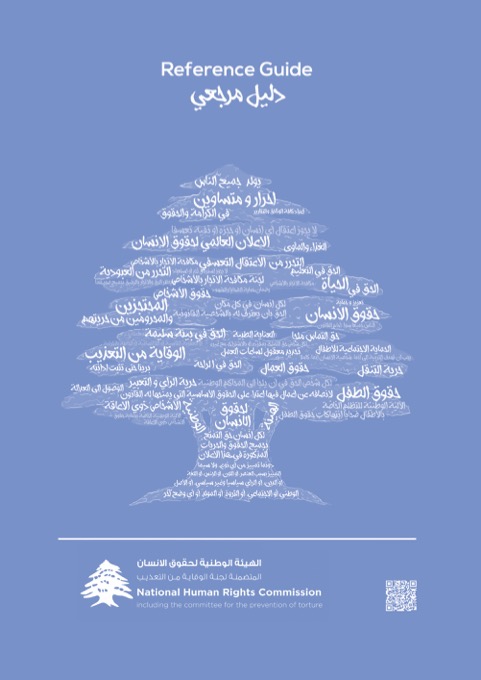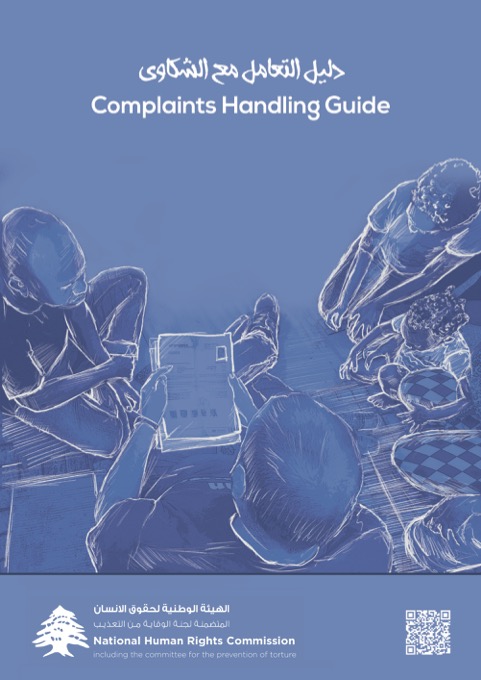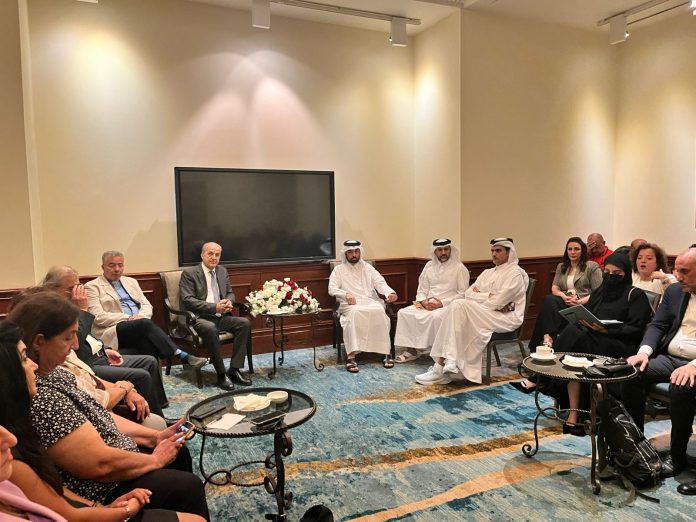The National Human Rights Commission, which includes the Committee for the Prevention of Torture in Lebanon, organized a consultative meeting with Lebanese civil society organizations on Tuesday, July 29, 2025, at the meeting hall of the Phoenicia Hotel in Beirut. This event was held in partnership with the National Human Rights Committee of Qatar and supported by the General Secretariat of the Arab Network of National Human Rights Institutions.
The meeting aimed to strengthen dialogue and coordination among national stakeholders in the human rights field and to support regional partnerships for developing national protection mechanisms. Representatives of 57 organizations and associations involved in human, social, and civic rights in Lebanon participated.
Among the attendees were Dr. Fadi Gerges, President of the National Human Rights Commission including the Committee for the Prevention of Torture; Sultan bin Hassan Al Jamali, Secretary General of the Qatari National Human Rights Committee and Secretary General of the Arab Network; Judge Khalil Abu Rajeli, Chair of the Committee for the Prevention of Torture and Vice-President of the Commission; Ali Youssef, Treasurer and Commissioner for Complaints; Bassam Al Kantar, Commissioner for International Relations and Media; Professor Fadel Daher, Commissioner for Studies, Monitoring, and Education; and Ms. Rida Azar, a member of the Committee for the Prevention of Torture.
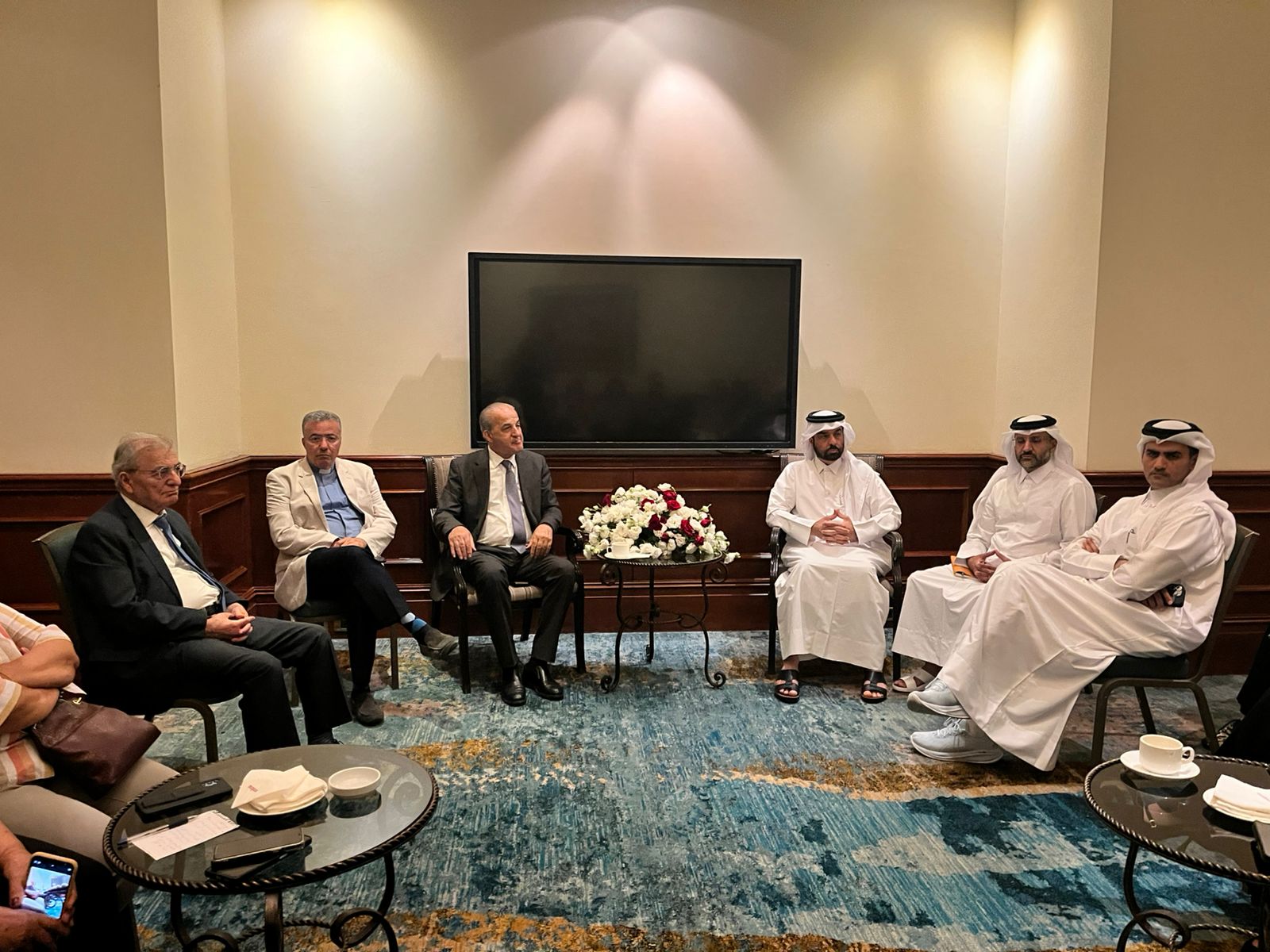
Key Speeches
Dr. Fadi Gerges opened the meeting with remarks emphasizing the importance of constructive cooperation with civil society as a vital force for protecting rights and promoting accountability in Lebanon. He called for continued collaborative efforts to address current challenges.
Mr. Sultan bin Hassan Al Jamali praised the Lebanese efforts and reaffirmed the Arab Network’s commitment to supporting national and regional initiatives for human rights.
Bassam Al-Quntar presented the meeting’s themes and the Commission’s key activities, notably advocacy for implementing regulatory decrees, preparations for Lebanon’s Universal Periodic Review (UPR) in 2026, and efforts to join the Global Alliance of National Human Rights Institutions (GANHRI), which requires submitting a formal application to the alliance’s secretariat for “A” status.
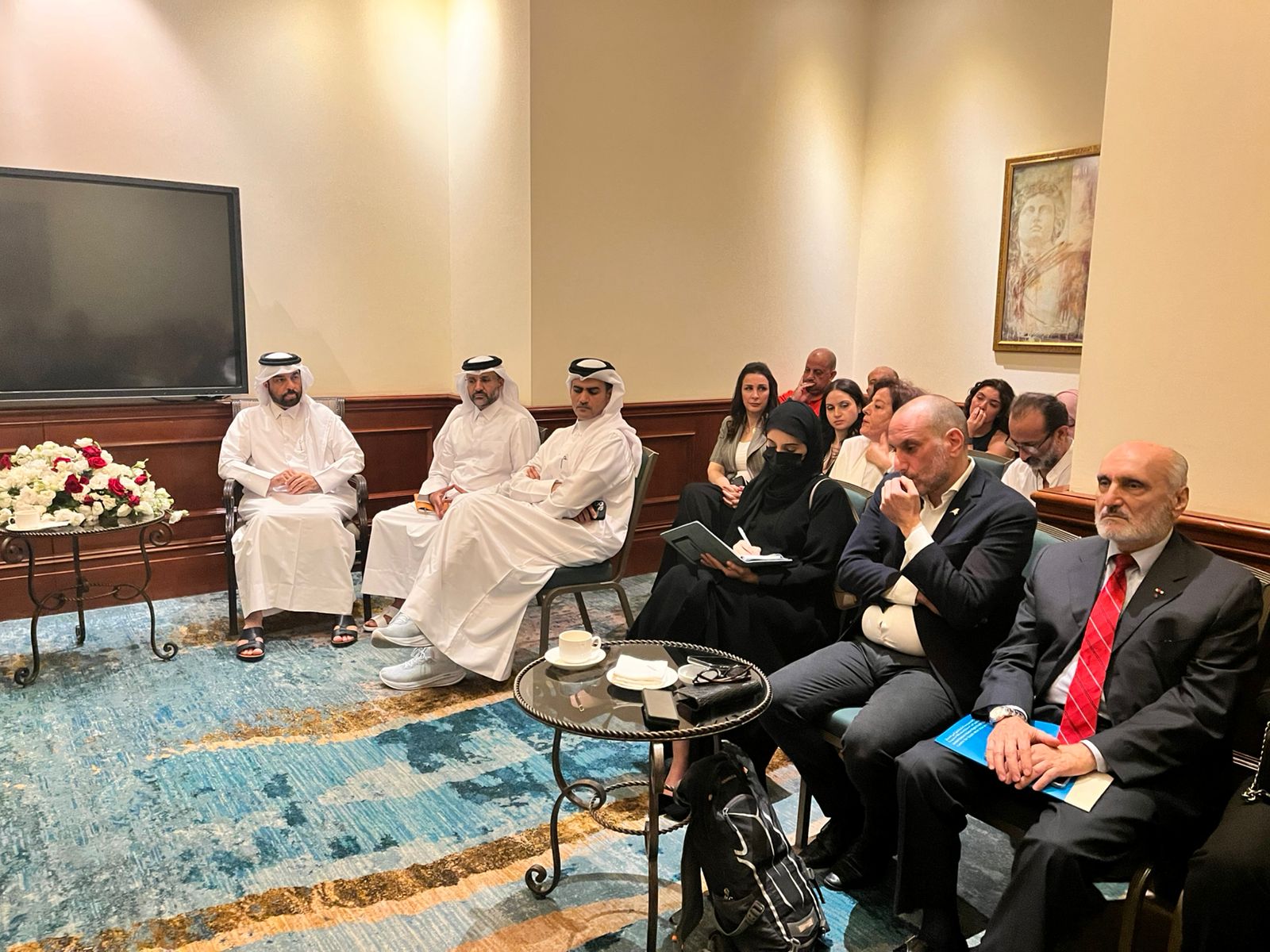
Discussion Highlights
The meeting tackled several core human rights issues in Lebanon, focusing on challenges and opportunities to strengthen rights and freedoms, and discussed ways to deepen collaboration between the National Commission and civil society across four main topics:
1. Rights of Persons with Disabilities
Participants discussed the challenges facing persons with disabilities in Lebanon, particularly the lack of support structures and enforcement of the UN Convention on the Rights of Persons with Disabilities (signed and ratified by Lebanon in June 2007). Key recommendations included:
-
Establishing an independent national mechanism for monitoring implementation under Article 33.
-
Enhancing cooperation with the UN Committee on the Rights of Persons with Disabilities and enabling individuals and groups to file individual complaints.
-
Strengthening coordination between the Commission and specialized organizations for comprehensive efforts.
2. Civil, Political, Economic, Social, and Cultural Rights
Discussion centered on rising challenges to the rights to life, liberty, personal security, freedom of expression, and fair trial, as well as deteriorating conditions in employment, education, health, housing, and social protection. Emphasis was placed on:
-
Unifying efforts with civil society in preparation for the UPR in January 2026.
-
Developing joint follow-up and advocacy mechanisms to ensure international obligations are met.
3. Gender Equality and Women’s Rights
Participants addressed structural and social challenges facing women and girls in Lebanon. They emphasized:
-
Strengthening collaboration with women’s organizations and integrating efforts in protecting women’s rights.
-
Developing a national plan to abolish discriminatory laws and adopt policies to protect against domestic and gender-based violence.
-
Ensuring legal, social, and psychological support for victims and establishing effective accountability mechanisms.
4. Children’s Rights
The discussion covered issues like birth registration, children in the judicial system, street children, violence, and access to healthcare. Emphasis was placed on:
-
Enhancing cooperation with child rights organizations to ensure full implementation of the Convention on the Rights of the Child and its optional protocols.
-
Supporting advocacy for a new optional protocol on the right to early childhood and pre-primary and secondary free education.
Civil Society Petition: For the Activation and Independence of the National Human Rights Commission
At the end of the meeting, participating civil society organizations issued a joint petition that stated:
Civil Society Petition
To Activate and Ensure the Independence of the National Human Rights Commission Including the Committee for the Prevention of Torture
We, the civil society organizations participating in the meeting,
-
Recalling the UN Charter, the Universal Declaration of Human Rights, and related international instruments;
-
Citing the Lebanese Constitution’s preamble affirming Lebanon’s commitment to the UDHR and human rights protection;
-
Recalling all relevant UN resolutions on national human rights institutions;
-
Reaffirming the Vienna Declaration and Programme of Action on the central role of national institutions;
-
Guided by the Paris Principles and the role of GANHRI;
-
Emphasizing the importance of independent, pluralistic institutions as indicators of progress toward SDG 16;
-
Reaffirming the essential role of Lebanon’s National Human Rights Commission;
Declare:
-
We welcome consultative meetings between the Commission and stakeholders, especially civil society organizations in Lebanon, and stress the need to expand cooperation in all human rights protection areas. We advocate for lasting partnerships with NGOs active in human rights, social and economic development, anti-racism, and protection of marginalized groups.
-
We call on the Lebanese government to fulfill its responsibilities by immediately enacting all pending regulatory decrees—especially internal and financial regulations and setting member allocations—to ensure the Commission’s independence from executive authorities and its ability to perform its mandate as outlined in the Vienna Declaration and Paris Principles.
-
We stress the need to protect the Commission, its members, staff, and collaborators from intimidation, retaliation, political pressure, or unfair prosecution. The founding law guarantees member immunity. We urge judicial authorities to promptly investigate any complaints or reports submitted by the Commission and hold perpetrators accountable.
هذه المقالة متاحة أيضًا بـ: العربية (Arabic) Français (French)
